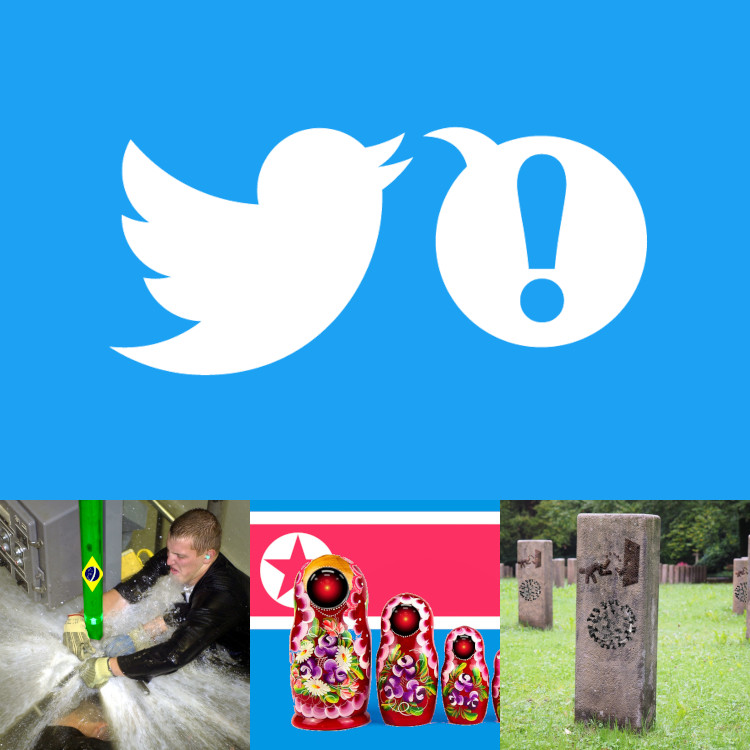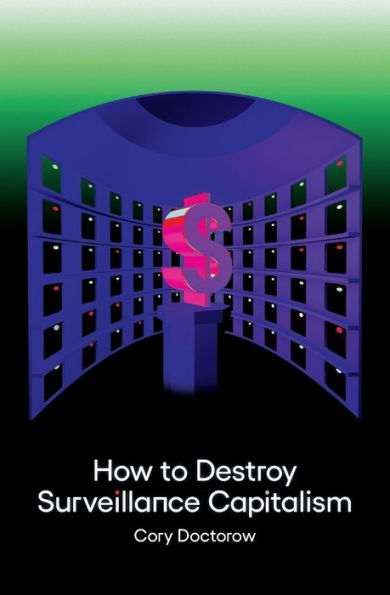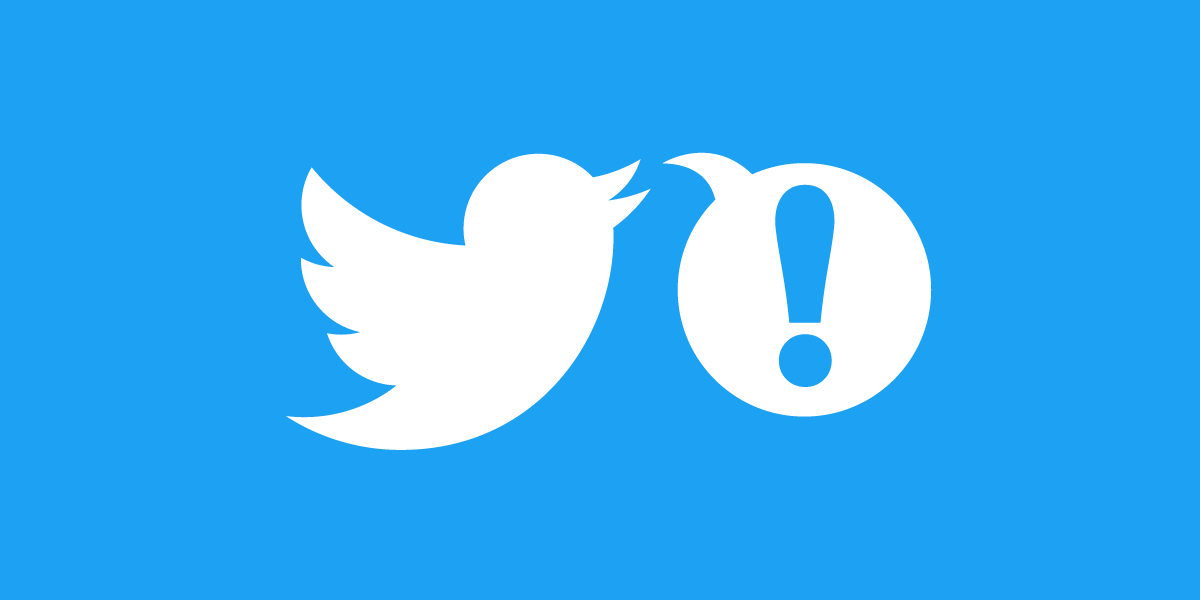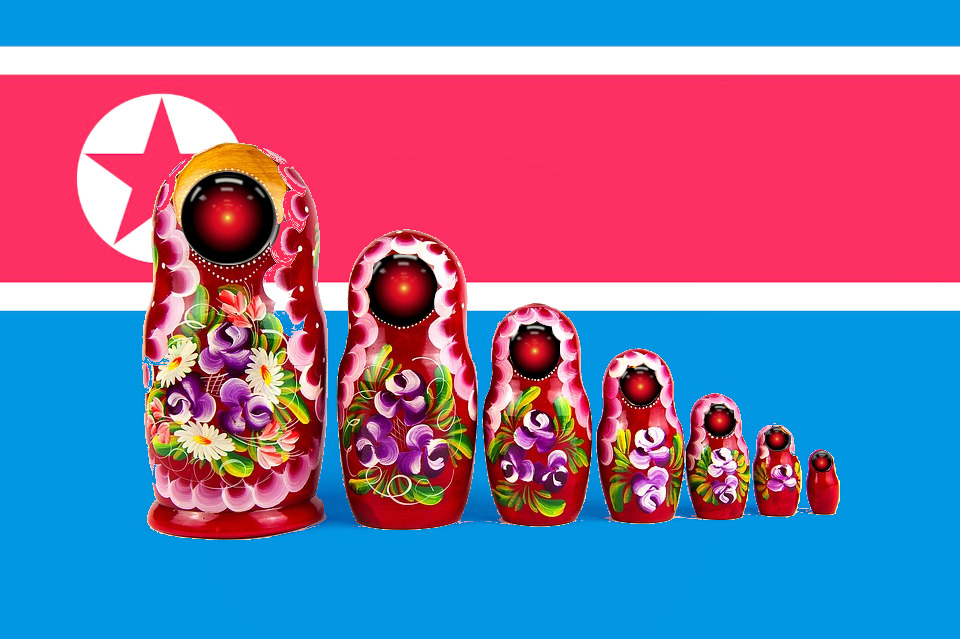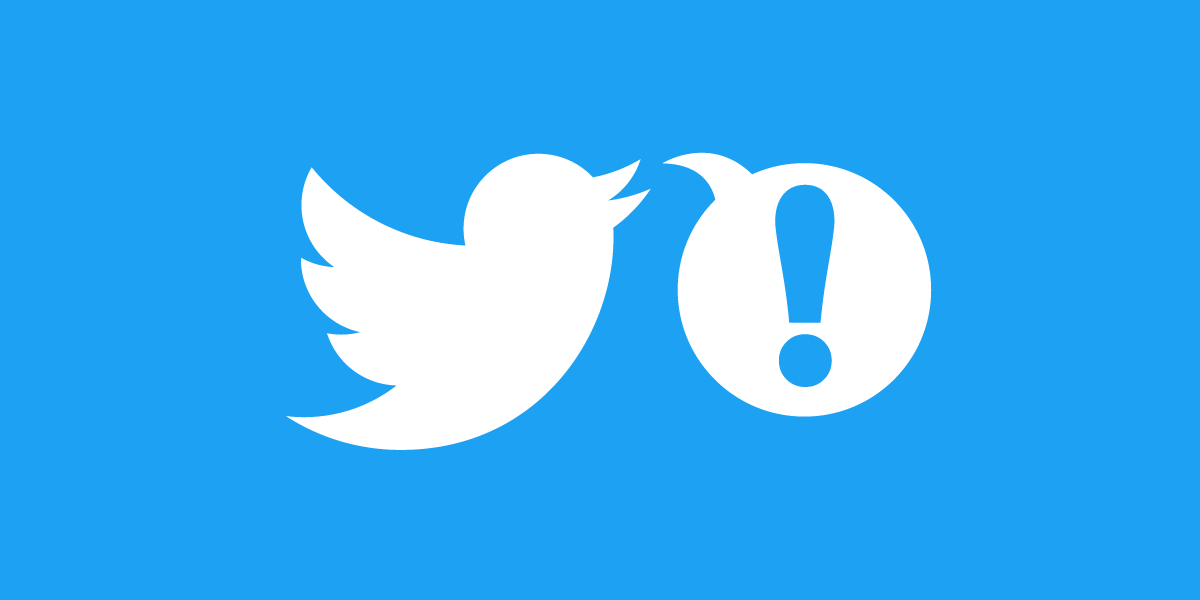
Today's Twitter threads (a Twitter thread).
Inside: Stop saying "it's not censorship if it's not the government"; Trump's swamp gators find corporate refuge; and more!
Archived at: pluralistic.net/2021/01/24/1a/
#Pluralistic
1/
Inside: Stop saying "it's not censorship if it's not the government"; Trump's swamp gators find corporate refuge; and more!
Archived at: pluralistic.net/2021/01/24/1a/
#Pluralistic
1/

Monday night, I'll be helping William Gibson launch the paperback edition of his novel AGENCY at a Strand Bookstore videoconference. Come say hi!
eventbrite.com/e/william-gibs…
2/
eventbrite.com/e/william-gibs…
2/

Stop saying "it's not censorship if it's not the government": I didn't expect the Spanish Inquisition.
3/
https://twitter.com/doctorow/status/1353383407875592192
3/

Trump's swamp gators find corporate refuge: The Swamped project.
4/
https://twitter.com/doctorow/status/1353406045561835520
4/

#15yrsago A-Hole bill would make a secret technology into the law of the land freedom-to-tinker.com/2006/01/23/ana…
#15yrsago Hollywood’s MP loses the election — hit the road, Sam! web.archive.org/web/2006011602…
#15yrsago How William Gibson discovered science fiction infinitematrix.net/faq/essays/gib…
5/
#15yrsago Hollywood’s MP loses the election — hit the road, Sam! web.archive.org/web/2006011602…
#15yrsago How William Gibson discovered science fiction infinitematrix.net/faq/essays/gib…
5/
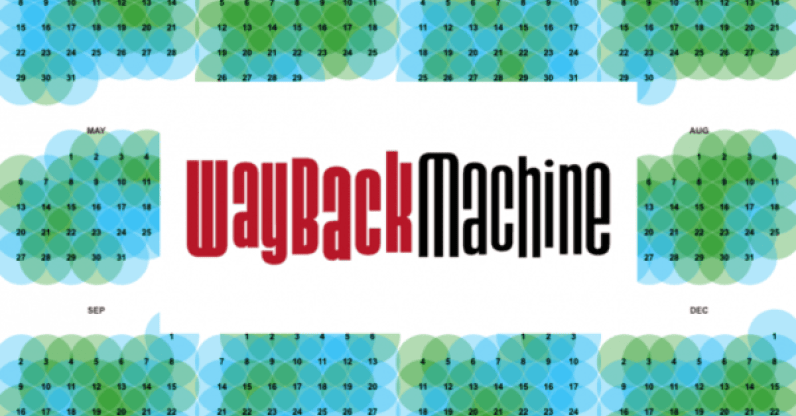
#10yrsago Douglas Adams’ online encylopedia tries to buy itself back from the BBC h2g2.com/entry/A80173361
#10yrsago Meet Obama’s new Solicitor General: the copyright industry’s Donald Verrilli Jr arstechnica.com/tech-policy/20…
6/
#10yrsago Meet Obama’s new Solicitor General: the copyright industry’s Donald Verrilli Jr arstechnica.com/tech-policy/20…
6/

#10yrsago Anti-capitalist rumba rave in a Spanish bank
#10yrsago No one will sell sodium thiopental to American executioners theguardian.com/world/2011/jan…
#10yrsago Comics Code Authority is dead web.archive.org/web/2011012502…
7/
#10yrsago No one will sell sodium thiopental to American executioners theguardian.com/world/2011/jan…
#10yrsago Comics Code Authority is dead web.archive.org/web/2011012502…
7/

#5yrsago Disney’s prized theme-park no-fly zone means it can’t use drones in its firework shows washingtonpost.com/news/innovatio…
#1yrago Bipartisan consensus is emerging on reining in Big Tech theverge.com/2020/1/23/2107…
8/
#1yrago Bipartisan consensus is emerging on reining in Big Tech theverge.com/2020/1/23/2107…
8/

#1yrago London cops announce citywide facial recognition cameras theverge.com/2020/1/24/2107…
#1yrago Canadian “protesters” at Huawei extradition hearing say they were tricked, thought they were in a music video thebreaker.news/news/paid-prot…
9/
#1yrago Canadian “protesters” at Huawei extradition hearing say they were tricked, thought they were in a music video thebreaker.news/news/paid-prot…
9/

#1yrago The case for replacing air travel with high-speed sleeper trains theconversation.com/could-sleeper-…
#1yrago Youtube’s Content ID has become the tool of choice for grifty copyfraudsters who steal from artists techdirt.com/articles/20200…
10/
#1yrago Youtube’s Content ID has become the tool of choice for grifty copyfraudsters who steal from artists techdirt.com/articles/20200…
10/

#1yrago Wells Fargo’s ex-CEO will pay $17.5m in fines and never work in banking again (but he is still very, very rich) desmoinesregister.com/story/money/bu…
#1yrago Howto: roleplay a suit of armor filled with bees
11/
#1yrago Howto: roleplay a suit of armor filled with bees
https://twitter.com/snickelsox/status/1220422182045659143
11/

#1yrago Jamie Dimon is a (highly selective) socialist
#1yrago Majority of UK booze-industry revenues come from problem drinkers theguardian.com/society/2016/j…
12/
#1yrago Majority of UK booze-industry revenues come from problem drinkers theguardian.com/society/2016/j…
12/

#1yrago US insurers, sick of being gouged by Big Pharma, will develop cheap generics arstechnica.com/science/2020/0…
#1yrago White nationalists planned to murder cops and pro-gun protesters in Virginia cbsnews.com/news/gun-rally…
13/
#1yrago White nationalists planned to murder cops and pro-gun protesters in Virginia cbsnews.com/news/gun-rally…
13/

#1yrago A sober look at kratom, a psychoactive plant that has many claimed benefits, and has also inspired a moral panic wired.com/story/release-…
#1yrago Microsoft employs a giant plush Clippy whose performer has a large Clippy tattoo
14/
#1yrago Microsoft employs a giant plush Clippy whose performer has a large Clippy tattoo
https://twitter.com/radmint/status/1214226032946905088
14/
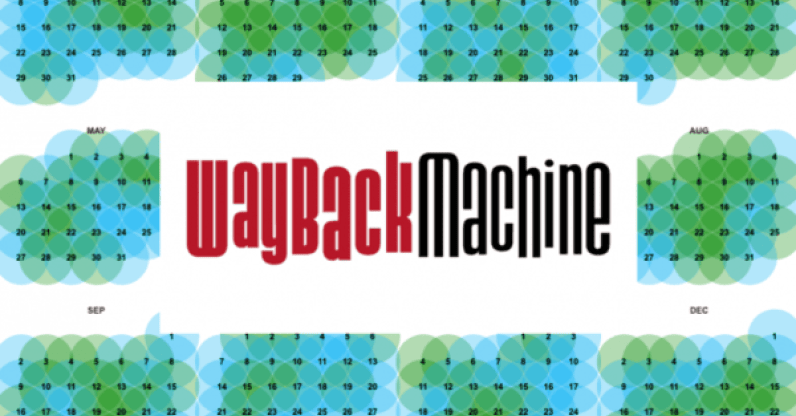
#1yrago Unauthorized Charcoal: GE fridges won’t dispense ice or water unless your filter authenticates as an official ($55!) component
15/
https://twitter.com/IamShaneMorris/status/1220367934947758080
15/

Friday's threads: Launching a print edition of HOW TO DESTROY SURVEILLANCE CAPITALISM; EFF's transition memo for the Biden admin; How one of America's most abusive employers gets away with it; and more!
16/
https://twitter.com/doctorow/status/1352675024205881346
16/

My latest novel is Attack Surface, a sequel to my bestselling Little Brother books. @washingtonpost called it "a political cyberthriller, vigorous, bold and savvy about the limits of revolution and resistance."
Get signed books from @darkdel: darkdel.com/store/p1840/Av…
17/
Get signed books from @darkdel: darkdel.com/store/p1840/Av…
17/
My 2020 book "How to Destroy Surveillance Capitalism" is a critique of Big Tech connecting conspiratorial thinking to the rise of tech monopolies and proposing a way to deal with both:
onezero.medium.com/how-to-destroy…
Now, it's available in paperback!
barnesandnoble.com/w/how-to-destr…
18/
onezero.medium.com/how-to-destroy…
Now, it's available in paperback!
barnesandnoble.com/w/how-to-destr…
18/

My ebooks and audiobooks (from @torbooks, @HoZ_Books, @mcsweeneys, and others) are for sale all over the net, but I sell 'em too, and when you buy 'em from me, I earn twice as much and you get books with no DRM and no license "agreements."
craphound.com/shop/
19/
craphound.com/shop/
19/

Upcoming appearances:
* Evening with William Gibson, Jan 25, eventbrite.com/e/william-gibs…
* Launch for the print edition of HOW TO DESTROY SURVEILLANCE CAPITALISM, Jan 28, medium.zoom.us/webinar/regist…
20/
* Evening with William Gibson, Jan 25, eventbrite.com/e/william-gibs…
* Launch for the print edition of HOW TO DESTROY SURVEILLANCE CAPITALISM, Jan 28, medium.zoom.us/webinar/regist…
20/

Recent appearances:
* Monocle Reads monocle.com/radio/shows/me…
* Hedging Bets on the Future (Motherboard Cyber):
play.acast.com/s/cyber/hedgin…
* Applying the Pandemic Mindset to Climate Change:
hbr.org/podcast/2020/1…
21/
* Monocle Reads monocle.com/radio/shows/me…
* Hedging Bets on the Future (Motherboard Cyber):
play.acast.com/s/cyber/hedgin…
* Applying the Pandemic Mindset to Climate Change:
hbr.org/podcast/2020/1…
21/

My first picture book is out! It's called Poesy the Monster Slayer and it's an epic tale of bedtime-refusal, toy-hacking and monster-hunting, illustrated by Matt Rockefeller. It's the monster book I dreamt of reading to my own daughter.
pluralistic.net/2020/07/14/poe…
22/
pluralistic.net/2020/07/14/poe…
22/

You can also follow these posts as a daily blog at pluralistic.net: no ads, trackers, or data-collection!
Here's today's edition: pluralistic.net/2021/01/24/1a/
23/
Here's today's edition: pluralistic.net/2021/01/24/1a/
23/
If you prefer a newsletter, subscribe to the plura-list, which is also ad- and tracker-free, and is utterly unadorned save a single daily emoji. Today's is "👯♂️". Suggestions solicited for future emojis!
Subscribe here: pluralistic.net/plura-list
24/
Subscribe here: pluralistic.net/plura-list
24/
Are you trying to wean yourself off Big Tech? Follow these threads on the #fediverse at @pluralistic@mamot.fr.
Here's today's edition: mamot.fr/@pluralistic/1…
25/
Here's today's edition: mamot.fr/@pluralistic/1…
25/
• • •
Missing some Tweet in this thread? You can try to
force a refresh


